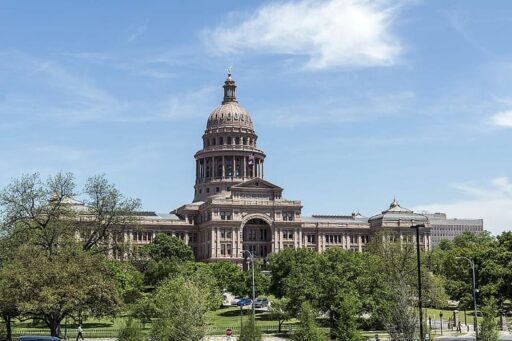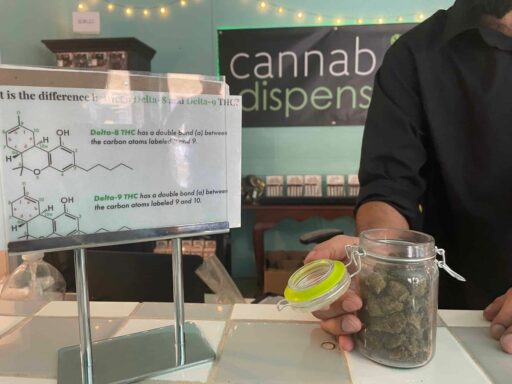Navigating the complex web of cannabis laws in California can be a daunting task, especially for visitors or newcomers to the Golden State. While recreational marijuana use has been legal for adults aged 21 and over since 2016, there are still plenty of nuances and regulations to keep in mind. This article delves into the intricate details of California’s cannabis legislation, providing clarity on the differences between recreational and medical marijuana, consumption guidelines, and the impact of local ordinances.
Key Takeaways
- Understand the distinction between federal and state law regarding cannabis, and recognize the Department of Cannabis Control’s role in regulation.
- Be aware of the purchasing limits and legal age for recreational use, and know the rules about public consumption and driving under the influence.
- Learn the differences between recreational and medical dispensaries, and the specific products and advice they offer.
- Familiarize yourself with local ordinances that may affect cannabis consumption and sales, as these can vary significantly by municipality.
- Prioritize responsible and discreet use to maintain the positive reputation of the cannabis community and ensure compliance with the law.
Understanding California’s Cannabis Laws

The Basics of Legalization
In 2016, California made a historic move by legalizing recreational marijuana use for adults aged 21 and over. This pivotal decision marked a significant shift in the state’s approach to cannabis, aligning with a growing trend towards legalization across the United States. Understanding the foundational laws is essential for both consumers and businesses operating in the cannabis market.
While the legalization has opened up new opportunities, it also comes with a set of regulations designed to govern the cultivation, distribution, and consumption of cannabis. Here are some key points to consider:
- Adults 21 and over can legally purchase and possess marijuana.
- There are strict guidelines on where cannabis can be consumed.
- Driving under the influence of cannabis remains illegal.
- Businesses must adhere to licensing and operational regulations.
It’s important to recognize that while state law permits the use of recreational cannabis, federal law still classifies it as an illegal substance. This dichotomy creates a complex legal landscape that requires careful navigation.
As the cannabis industry continues to evolve, staying informed about the legal framework is crucial for ensuring compliance and making the most of the opportunities that legalization presents.
Federal vs. State Law: The Cannabis Conundrum
The intersection of state and federal law presents a complex landscape for cannabis users and businesses in California. Despite state legalization, cannabis remains a Schedule I controlled substance federally, creating a dichotomy that affects everything from banking to law enforcement. The 2018 Farm Bill did remove hemp from the controlled substances list, reflecting a shift in federal perspective, albeit a limited one.
While California navigates its own cannabis policies, the federal stance continues to cast a shadow over the industry, with implications that reach into various aspects of legality and enforcement.
Understanding the nuances of this conundrum is crucial for anyone involved in the cannabis industry or those who partake in its use. Here’s a quick rundown of the key differences:
- Federal Law: Cannabis is illegal under the Controlled Substances Act (CSA).
- State Law: California permits the use of cannabis for both medical and recreational purposes.
- Financial Services: Transactions involving cannabis proceeds may be subject to anti-money-laundering laws at the federal level.
- Local Regulations: Municipalities in California have the power to set their own cannabis policies, which can range from outright bans to full support of the industry.
Department of Cannabis Control: Regulatory Oversight
The Department of Cannabis Control (DCC) is the cornerstone of California’s cannabis regulatory framework, ensuring that the industry operates within the bounds of the law. The DCC’s mandate includes the protection of minors, the integrity of sales, and the adherence to state regulations, while also providing resources for businesses to navigate the complex landscape of cannabis legality.
The DCC’s new database is a testament to their commitment to transparency, offering interactive dashboards that track licensing, harvests, pricing, and sales data. This tool is invaluable for consumers, stakeholders, and lawmakers to understand industry trends and make informed decisions.
Here are some key functions of the DCC:
- Regulatory Compliance & Licensing
- Risk Mitigation Advice & Counsel
- Venture Capital
- Guidance on Applying for, Buying, and Selling Cannabis Business Licenses
Businesses in the cannabis industry face a unique set of challenges due to the heavy regulation. From administrative hearings and appeals to license violation defense, the DCC provides a structured approach to help businesses maintain compliance and successfully navigate the regulatory environment.
Recreational vs. Medical Marijuana

Purchasing Limits and Legal Age
In California, the legal landscape of cannabis is as diverse as its strains. Recreational users must be 21 or older to legally purchase marijuana, aligning with the age for alcohol consumption. The state permits these individuals to buy up to one ounce of cannabis or eight grams of concentrated cannabis at a time.
For medical marijuana, the threshold is lower; individuals aged 18 and above with a valid doctor’s recommendation can access cannabis. Medical patients are often allowed to purchase and possess larger quantities to meet their therapeutic needs, subject to county regulations.
While recreational dispensaries cater to adult use without medical prerequisites, medical dispensaries offer more potent products and higher purchase limits for patients.
Understanding these distinctions is crucial for consumers to navigate dispensaries and remain compliant with state laws. Here’s a quick reference for the legal purchasing limits in California:
| Type | Age Requirement | Purchase Limit |
|---|---|---|
| Recreational | 21+ | 1 oz cannabis / 8g concentrate |
| Medical | 18+ (with recommendation) | Varies by county |
Public Consumption and DUI Laws
In California, the law is clear: public consumption of cannabis is illegal. Whether you’re a recreational user or have a medical prescription, consuming cannabis in public spaces such as parks, beaches, or sidewalks is not permitted. This restriction is a critical component of the state’s approach to regulating marijuana use and ensuring public safety.
When it comes to driving, the rules are just as stringent. Driving under the influence of cannabis is treated with the same severity as alcohol-related DUIs. The state considers these offenses as ‘wobblers’, which means they can be prosecuted as either misdemeanors or felonies, depending on the circumstances. Here’s a quick rundown of what to keep in mind:
- Never consume cannabis in public places.
- Avoid driving if you have consumed cannabis; it can impair your ability to operate a vehicle safely.
- Be aware that open containers of cannabis in vehicles are prohibited, similar to open alcohol containers.
While the nuances of local ordinances may vary, the overarching message is clear: prioritize your safety and the safety of others by adhering to the state’s consumption and DUI laws.
Navigating Dispensary Differences
When exploring the diverse landscape of California’s cannabis dispensaries, it’s essential to recognize the unique attributes of each establishment. A responsible consumer should start by verifying the dispensary’s legitimacy through the Department of Cannabis Control (DCC) license search or by inspecting the QR code on their state license certificate.
Dispensaries vary widely in their product offerings and quality. It’s crucial to find a place that not only provides a wide range of products, from flowers to edibles and concentrates, but also maintains high standards of quality. Avoid temptations from unusually low prices as they might indicate inferior or illegal products.
As you step into the world of cannabis retail, align your choices with your personal needs. Whether seeking relaxation, pain relief, or an energizing experience, let your intentions guide your selection. Engage with knowledgeable budtenders and take comfort in the presence of security measures designed for your protection.
Remember, the right dispensary for you is one that aligns with your preferences, offers a positive community reputation, and commits to product excellence.
Compliance and Consumption in Public Spaces

Understanding Public Consumption Restrictions
In California, while the use of cannabis is legal for adults over the age of 21, public consumption is strictly prohibited. This includes all forms of cannabis, whether smoked, vaped, or eaten, and extends to a variety of public spaces such as parks, sidewalks, and beaches. The intent behind these laws is to maintain public decorum and safety, ensuring that cannabis use does not infringe upon the rights and comfort of non-consumers.
The nuances of public consumption laws are vital for both residents and visitors to understand. While private property offers some leeway, the public domain is off-limits for cannabis use, mirroring restrictions similar to those on alcohol and tobacco.
Local ordinances can further dictate the specifics of these restrictions, leading to a mosaic of regulations that vary from city to city. For instance, San Francisco may offer more leniency in certain aspects compared to neighboring counties with stricter enforcement. It’s imperative to know your rights as a cannabis consumer and stay informed about the local laws of the area you’re in.
The Legality of Cannabis in Hotels and Private Venues
When considering the use of cannabis in hotels and private venues in California, it’s crucial to be aware of the specific policies of each establishment. Violating these policies can lead to significant repercussions, including fines or eviction. A survey by the American Hotel & Lodging Association found that 97% of hotels prohibit cannabis smoking on their premises.
While some hotels are cannabis-friendly, they often restrict smoking to certain areas to ensure the comfort and safety of all guests. It’s important to respect these designated zones and adhere to the hotel’s guidelines.
Here are some tips for a compliant and enjoyable stay:
- Always check the hotel’s terms and conditions regarding cannabis use.
- Look for hotels that offer designated smoking rooms or areas.
- Consider alternatives like edibles or vaporizers, which may be less intrusive.
- Research local laws and hotel policies thoroughly before consuming cannabis.
By staying informed and respectful of the rules, you can enjoy your stay without legal concerns or disrupting the experience of others.
Responsible Use and Community Reputation
The path to responsible cannabis consumption is not just about personal enjoyment but also about respecting the community and its norms. Responsible use involves being aware of the health benefits and potential risks associated with cannabis, and making choices that ensure safety for oneself and others. It’s important to purchase from licensed retailers to avoid health hazards like mold or harmful chemicals.
- Remember, responsible and discreet consumption is key to maintaining a positive reputation for the cannabis community.
- The specter of addiction is a serious consideration, with a significant risk for regular users, especially those who start before adulthood.
The community’s perception of cannabis culture is influenced by the actions of its members. To contribute positively, always prioritize safety, legality, and discretion in your consumption habits.
The Role of Local Ordinances in Cannabis Regulation

Municipal Powers and Cannabis Policies
In California, the landscape of cannabis regulation is as varied as its topography. Municipalities wield significant power in shaping the local cannabis scene, with the ability to tailor policies to their community’s preferences. This autonomy can lead to a mosaic of regulations that impact how businesses operate and consumers engage with cannabis products.
- Some cities, like San Francisco, have a high density of licensed cannabis retailers.
- In contrast, areas such as San Mateo County have opted to ban commercial cannabis activities.
The disparity in local laws underscores the importance of understanding the specific regulations that apply to each municipality. As a consumer or business operator, staying informed is crucial to navigating the complex web of local ordinances.
This patchwork of local laws means that the rules can vary significantly from one city to the next, affecting everything from business licensing to public consumption. It’s always a good idea to familiarize yourself with the specific regulations of the area you’ll be visiting or operating in.
Navigating Varied Local Laws
The landscape of cannabis regulation in California is a complex tapestry, with local ordinances weaving a diverse pattern of rules and restrictions. Understanding these local nuances is crucial for anyone looking to purchase or consume cannabis within the state.
- In San Francisco, a hub for cannabis culture, over 200 licensed retailers operate freely.
- Contrastingly, San Mateo County enforces a complete ban on commercial cannabis activities.
The disparity in local laws underscores the importance of researching regulations specific to each municipality before engaging in cannabis-related activities.
Cities like Los Angeles and San Francisco have implemented social equity ordinances, reflecting a commitment to rectify the consequences of historical drug policies. These local laws not only govern the sale and consumption of cannabis but also address broader issues such as environmental protection and tax compliance. For businesses, navigating this intricate web is a daily reality, requiring diligence and adaptability.
Impact on Consumers and Businesses
The local ordinances governing cannabis have a direct impact on consumers and businesses, shaping the commercial landscape and user experience. For consumers, these regulations determine where they can purchase and consume cannabis, while businesses must navigate a complex web of municipal rules to operate legally.
- Consumers often face confusion due to varying local laws, which can affect accessibility and the types of products available.
- Businesses, especially smaller ones, may struggle with the costs and complexities of compliance, potentially limiting their growth and innovation.
The dynamic nature of local cannabis policies requires ongoing vigilance and adaptation from all stakeholders involved.
Legislative changes at the local level can also influence insurance practices and product liability issues, creating a challenging environment for operators to secure coverage and protect themselves against claims. It is crucial for both consumers and businesses to stay informed and actively participate in local cannabis policy discussions to ensure their interests are represented.
Key Takeaways for Responsible Cannabis Consumption

Educating Yourself on Cannabis Products
Responsible cannabis consumption begins with education. Understanding the health benefits and potential risks is essential for ensuring safe usage and mitigating harm to oneself and others. When visiting dispensaries, it’s important to engage with knowledgeable staff who can provide personalized recommendations based on your therapeutic needs and preferences.
- The value of a friendly conversation with a budtender cannot be overstated.
- Staff’s regular sampling of products is crucial for accurate information.
- Licensed retailers protect consumers from untested products’ health hazards.
Remember, responsible and discreet consumption is key to maintaining a positive reputation for the cannabis community.
For those seeking to deepen their knowledge, consider educational resources such as the California Cannabis Retail Dispensary Training. Oaksterdam University’s program is designed to provide comprehensive education for those pursuing a career in cannabis dispensaries.
Staying Informed on Legal Developments
In the ever-evolving landscape of cannabis legislation, staying abreast of the latest legal developments is crucial for both consumers and businesses. With changes occurring at both the state and federal levels, it’s important to have reliable sources of information to ensure compliance and make informed decisions.
To keep up-to-date, consider the following steps:
- Regularly check updates from the California Department of Cannabis Control.
- Subscribe to legal news platforms, such as JD Supra, for tailored content on cannabis laws.
- Follow reputable news outlets and legal blogs that focus on cannabis legislation.
- Attend seminars and webinars hosted by legal experts in the field.
By proactively seeking out information and engaging with the cannabis community, individuals can navigate the legal landscape with greater confidence and responsibility.
One notable legal update to be aware of is the passage of Assembly Bill 2188, which will impact workplace drug testing policies in California starting in 2024. This bill represents a significant shift in employee rights regarding cannabis consumption.
Prioritizing Safety and Discretion
When it comes to cannabis consumption, prioritizing safety and discretion is paramount. This not only ensures your own well-being but also helps maintain the integrity of the cannabis community. To achieve this, consider the following points:
- Understand the health implications of cannabis use, recognizing both its benefits and potential risks.
- Mitigate harm by using cannabis in a safe manner, being mindful of the dosage and the setting.
- Stay informed about the latest laws and standards, especially when it comes to drug testing and workplace policies.
Responsible consumption is about more than just following the law; it’s about respecting the community and setting a positive example.
Remember, while it is illegal to smoke or consume cannabis in public places, such as parks, sidewalks, or beaches, the same discretion should be applied when considering consumption in private settings, like hotels. Always confirm the rules with your accommodation to avoid any legal issues.
Conclusion
As we conclude this exploration of California’s cannabis landscape, it’s clear that the state’s legal framework offers both opportunities and limitations for recreational marijuana use. While adults aged 21 and over can enjoy the freedom to purchase and consume cannabis within the state’s guidelines, it’s crucial to remain aware of the nuances of local laws, hotel policies, and the importance of responsible consumption. By staying informed and respectful of the regulations, individuals can partake in cannabis use while contributing to a safe and positive community environment. Remember, the key to a harmonious relationship with California’s cannabis culture lies in discretion, safety, and adherence to the law. Happy and responsible cannabis consumption!
Frequently Asked Questions
What is the legal age for recreational marijuana use in California?
The legal age for recreational marijuana use in California is 21 years and over.
Can I consume marijuana in public spaces in California?
No, public consumption of marijuana is illegal in California. It must be consumed in private residences or at licensed consumption sites.
Are there differences between recreational and medical marijuana dispensaries in California?
Yes, there are differences in terms of patient services, product offerings, and sometimes pricing between recreational and medical dispensaries.
How much marijuana can I purchase at a time in California?
Recreational users can purchase up to one ounce of cannabis or eight grams of concentrated cannabis at licensed dispensaries.
Is it legal to smoke marijuana in hotels in California?
It depends on the hotel’s policies. While the state has legalized cannabis, hotels and local municipalities may have their own restrictions.
How can I stay informed about the legal developments in California’s cannabis laws?
You can stay informed by following updates from the Department of Cannabis Control, local government websites, and reputable news sources.





